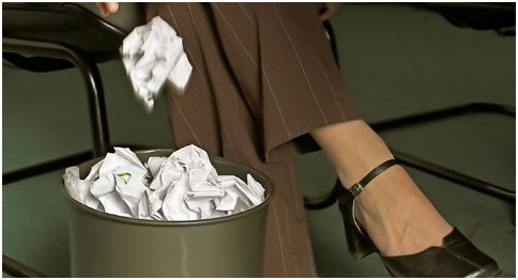
1. Numbers Don’t Add Up
If accomplishments can be quantified, do it—but use discretion. Brandishing borderline performance numbers signals a lack of experience and bad judgment. “Phrases like ‘Managed a budget of $500,000’ or ‘Led a team of two’ might catch my eye in a bad way,” warns Olaf Weckesser, a former recruiter for McKinsey & Co. Better to spin it as “Managed company’s largest budget.”.
2. Formality Takes a Vacation
Don’t succumb to the informality of email. “If you send a cover letter by email that starts with ‘Hi,’ it and your resume will probably end up in the trash,” says Cynthia Shore, an assistant dean at the University at Buffalo School of Management and former director of its career-resource center. Treat an email as you would a proper letter: Instead of “Hi,” write “Dear Mr. Case.” Instead of “Thanks,” conclude with “Sincerely.
3. Keywords are Overused
It’s true that recruiters sometimes use scanners to sort through resumes looking for certain keywords. But resumes appear contrived when candidates consciously try to include them. Describing a business-development position using such terms as needs assessment and contract analysis in order to squeeze in more keywords is a misguided strategy. Assume that a human being—not a computer—will be reading the resume. After all, these days fewer than 25 percent of all recruiters even use scanners.
4. Things Get Too Personal
“If you mention your age, we have to trash your resume,” says Jeremy Eskenazi, vice president of talent acquisition at Idealab!, the California incubator firm. Since it’s illegal for a company to solicit a candidate’s age, race, or marital status during the hiring process, firms have adopted a “don’t tell” policy to avoid potential bias suits. Many won’t risk even having it handed to them.
5. It Looks Too Fancy
“A recruiter who receives resumes in pretty plastic folders will likely toss them,” says Dave Opton, CEO and founder of ExecuNet, an online executive recruiting service. “I don’t have time to take the damn things apart.” Another faux pas: Folding a resume so that it fits into a standard business envelope. Heavy-stock paper that retains its crease can be a nuisance. Says Opton: “They’re easier to store and photocopy if they’re flat.” Also, don’t try to differentiate your resume with boxes or ornate lettering. When legal recruiters see a resume that’s designed differently, they think the person’s trying to hide something. Instead, focus on content. Your resume will rise to the top of the pile.

